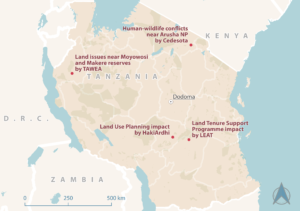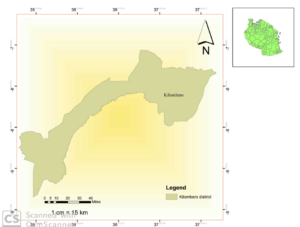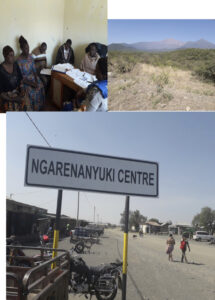The second volume of “Voices from Tanzania” presents four cases studies that focus on “land rights and environment”.
Download this publication in pdf
The studies are conducted by Tanzanian civil society organisations Lawyers’ Environmental Action Team (LEAT) , HakiArdhi (the Land Rights Research and Resources Institute), Tanzania Women Empowerment in Action (TAWEA) and Community Economic Development and Social Transformation (Cedesota).
Land is a crucial resource for the socio-economic development of communities in Tanzania, and especially for those in rural environments. Security of land tenure – allowing access to, use of and control of land- directly affects community’s livelihoods and quality of life. Land is also a key asset for business activities and local/foreign investment. Access to land and land tenure security, therefore, impact the (economic) development of the country as a whole.
Issues with land (resource) management and disputes over land rights are well-documented in Tanzania. Conflicts often exist due to the competing needs for land between different groups of users, such as small-holder farmers versus big agribusinesses, pastoralists versus farming communities, (indigenous) communities versus tourism investors or local communities versus conservation authorities. The absence of formalized land rights and land use plans in many regions of the country aids in sustaining land-related challenges.
The case studies in the second volume of “Voices from Tanzania” address two key issues in this regard: (1) how are initiatives to increase land tenure security and land use planning affecting rural communities, and (2) how are conservation efforts impacting land and human rights in villages adjacent to protected areas?
Download the publication in pdf
Lawyers’ Environmental Action Team (LEAT) conducted a study on the immediate effects of the Land Tenure Support Programme to communities in Kilombero district (Morogoro). The Land Tenure Support Programme is the biggest land regularization programme to date in Tanzania, aiming to improve land tenure security through good land tenure regularization. It was implemented between 2016-2019 in Morogoro, a region “famous” for its many land-based conflicts.
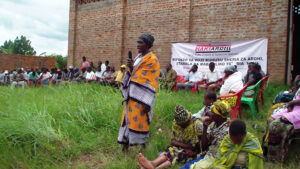 HakiArdhi (the Land Rights Research and Resources Institute) focused on how Land Use Planning can be a tool for promoting land governance, as seen in the specific case of Kilolo District, Iringa. Village land use planning determines the land area of a village and enables the demarcation of plots of land. It also debates and decides on the uses of these lands and on land ownership. Land use planning policies in Tanzania were developed in response to growing conflict over land and natural resources and the need for improved tenure security.
HakiArdhi (the Land Rights Research and Resources Institute) focused on how Land Use Planning can be a tool for promoting land governance, as seen in the specific case of Kilolo District, Iringa. Village land use planning determines the land area of a village and enables the demarcation of plots of land. It also debates and decides on the uses of these lands and on land ownership. Land use planning policies in Tanzania were developed in response to growing conflict over land and natural resources and the need for improved tenure security.
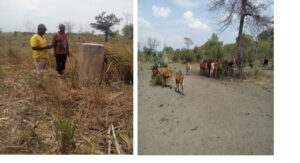 Tanzania Women Empowerment in Action (TAWEA) has investigated how protected areas in Kigoma region can cause land and human rights issues in communities adjacent to such areas. The study focused on 2 villages in Kasulu district, situated near the protected areas of Makere South Forest Reserve and Moyowosi Game Reserve. Population growth and an increasing demand for more farming land and resources to support villagers’ livelihoods increasingly put pressure on available resources within the villages. As a result, villagers have expanded their activities in the nearby reserves, which is in violation of the government’s conservation policies for these areas.
Tanzania Women Empowerment in Action (TAWEA) has investigated how protected areas in Kigoma region can cause land and human rights issues in communities adjacent to such areas. The study focused on 2 villages in Kasulu district, situated near the protected areas of Makere South Forest Reserve and Moyowosi Game Reserve. Population growth and an increasing demand for more farming land and resources to support villagers’ livelihoods increasingly put pressure on available resources within the villages. As a result, villagers have expanded their activities in the nearby reserves, which is in violation of the government’s conservation policies for these areas.
Community Economic Development and Social Transformation (Cedesota) studied how the proximity of Arusha National Park (Arumeru district, Arusha) impacts human rights in villages next to the park. There, human-wildlife conflicts are on the rise, as human population growth combined with fixed availability of resources results in increased interactions between wildlife and nearby communities. As these interactions often negatively affect both human and wildlife sustainability, they increasingly pose a threat to communities’ basic rights and wildlife conservation.
Overall conclusion
Albeit different in their specific context and topic – from the Land Tenure Support Programme in Kilombero (Morogoro), to village land use planning in Kilolo (Iringa) and protected areas in Kigoma and Arusha regions – all four studies stress the importance of land for the development of communities and the fulfilment of rights.
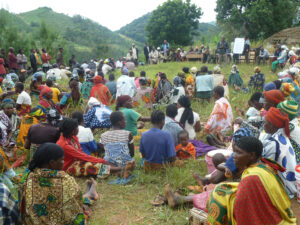 The search for livelihood opportunities (and related land-based resources) is underlying a lot of the land issues discovered in the studies. In essence, these issues result from the absence of land tenure clarity and security. Participatory land use planning and regularization of land, ensuring secured land tenure, are therefore considered crucial to resolve land issues and to protect and promote rights of different land users. Where implemented, these processes are found to produce positive effects. However, processes are often incomplete or unbalanced, due to insufficient funds, insufficient stakeholder capacities, insufficient general awareness and the absence of truly participatory practices, amongst others. These gaps have notable effects. Insufficient communication and awareness on rights, regulations and decision-making are found to further augment land-related tensions and conflicts.
The search for livelihood opportunities (and related land-based resources) is underlying a lot of the land issues discovered in the studies. In essence, these issues result from the absence of land tenure clarity and security. Participatory land use planning and regularization of land, ensuring secured land tenure, are therefore considered crucial to resolve land issues and to protect and promote rights of different land users. Where implemented, these processes are found to produce positive effects. However, processes are often incomplete or unbalanced, due to insufficient funds, insufficient stakeholder capacities, insufficient general awareness and the absence of truly participatory practices, amongst others. These gaps have notable effects. Insufficient communication and awareness on rights, regulations and decision-making are found to further augment land-related tensions and conflicts.
Read the full case studies and overall recommendations here: Download the publication in pdf
To stay up to date on Business and Human Rights in Tanzania, subscribe here
Join the conversation on Twitter #bizhumanrights #Tanzania
———————————————————

“Voices from Tanzania” is a collaboration between Tanzanian civil society organisations, the Tanzanian Commission for Human Rights and Good Governance (CHRAGG), Business and Human Rights Tanzania (BHRT) and the International Peace Information Service (IPIS). This publication is part of the ‘Improving monitoring, research and dialogue on Business & Human Rights in Tanzania’ project implemented by CHRAGG, BHRT and IPIS, with the financial support of the European Instrument for Democracy and Human Rights.

